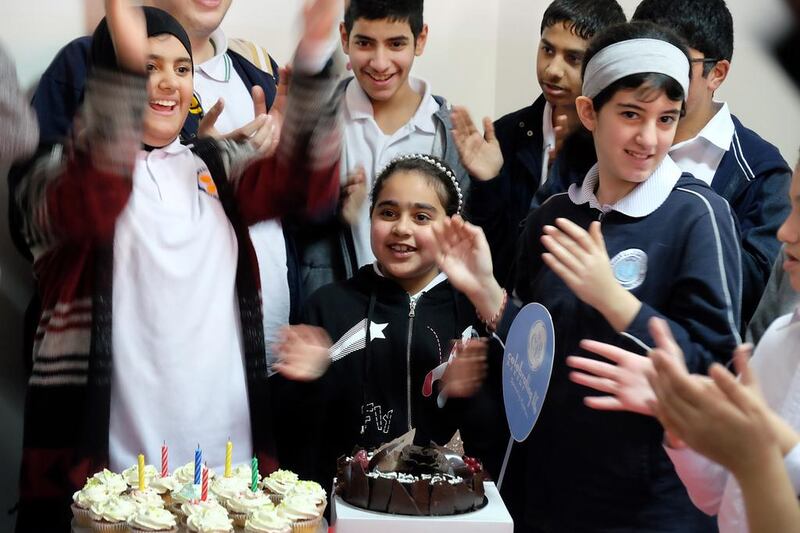Last weekend, news broke of the imminent closure of one of the capital's educational facilities for children with autism, the Gulf Autism Centre. Parents now face the challenge of finding another institution to educate their children from the beginning of the next academic year.
That's no easy task. There are other centres in Abu Dhabi that cater specifically for children on the widely ranging autism spectrum, as well as others that cater more generally for children with special needs.
There are, however, long waiting lists and, given the fact that centres catering for children with autism and with other special needs require more staff, it's not cheap, either.
It is difficult to fault the owner of the Gulf Autism Centre for her decision. Mariam Al Mazroui opened it in 2005 because of the lack of available facilities for her own son. Twelve years on, he has outgrown the programmes the centre can offer and, naturally, she wishes to devote more of her attention to him. At the same time, as she noted in an interview, she has been spending an annual sum of between Dh200,000 to Dh300,000 for several years to subsidise the centre. That's a huge amount; she deserves thanks for all that she has done.
Among the parents of children with autism or other special needs, it's no secret that there is a desperate shortage of suitable facilities, not just in Abu Dhabi, but throughout the country, despite the fact that, in the capital and elsewhere, considerable generosity has been displayed by members of the ruling families and others. Some friends of mine moved from their home emirate to Abu Dhabi a few years ago precisely because there was nothing available for their child in the city where they lived.
It is to the credit of some of the UAE's better mainstream schools that they make real efforts to accommodate children with a relatively minor degree of autism, but there are many children who require more specialist care, with specially trained teachers.
Special needs children, including those with autism, are among the most vulnerable in our society. The way in which they are able to develop is dependent on the awareness, understanding and help being provided by society as a whole, including government. In particular, it's widely recognised that early intervention is of enormous importance.
Before writing this column, I spoke to a friend of mine who, in her Twitter profile, describes herself as a “mother of a child with autism, which means I am a warrior!” Saddened by the closure of the Gulf Autism Centre, though her own son is at another school, she commented: “These children deserve the opportunity to have an education like any other child. They deserve to have a future filled with possibilities. What will happen in a few years when all these children are adults? Put the time and effort in when these children are young and give them the chance for a better future.”
She went on to express her disappointment that the owner of the Gulf Autism Centre had been unable to secure adequate financial assistance.
It's not so long ago that UAE society virtually overlooked children with autism and other special needs, almost relegating them to the shadows.
That's gone now, though, sadly, that attitude survives in many other countries. It's widely recognised that not only do they need special care and attention but also that they can have a positive and productive life, contributing in their own way to the building of our society.
They cannot do that, though, if the necessary investment in care and education is not made. The parents alone cannot do it.
In this Year of Giving, and in a country that, rightly, prides itself on its support for tolerance, is it too much to hope that, at last, these children, and their parents, will receive the scale of support that they need?
Peter Hellyer is a consultant specialising in the UAE’s history and culture





